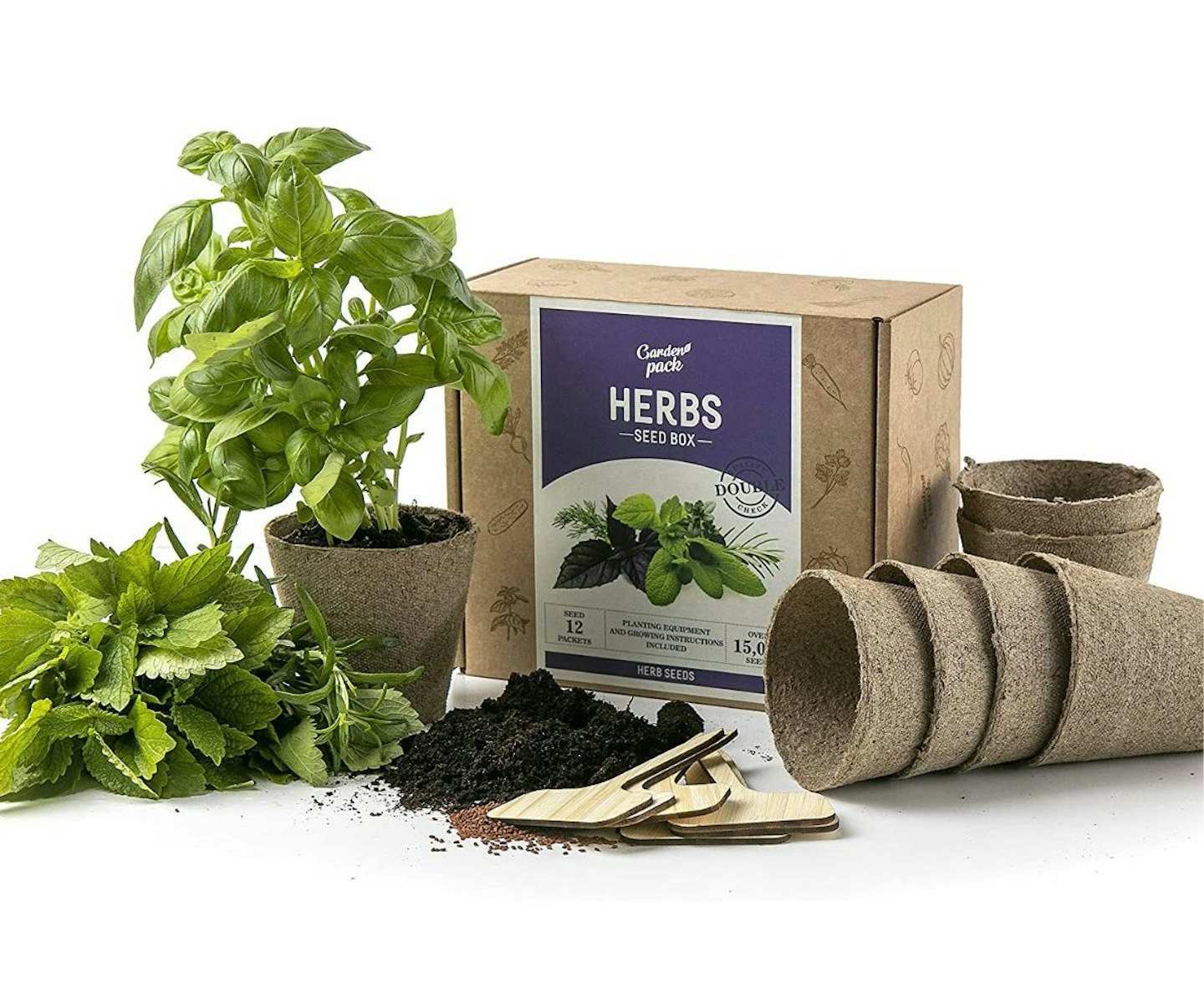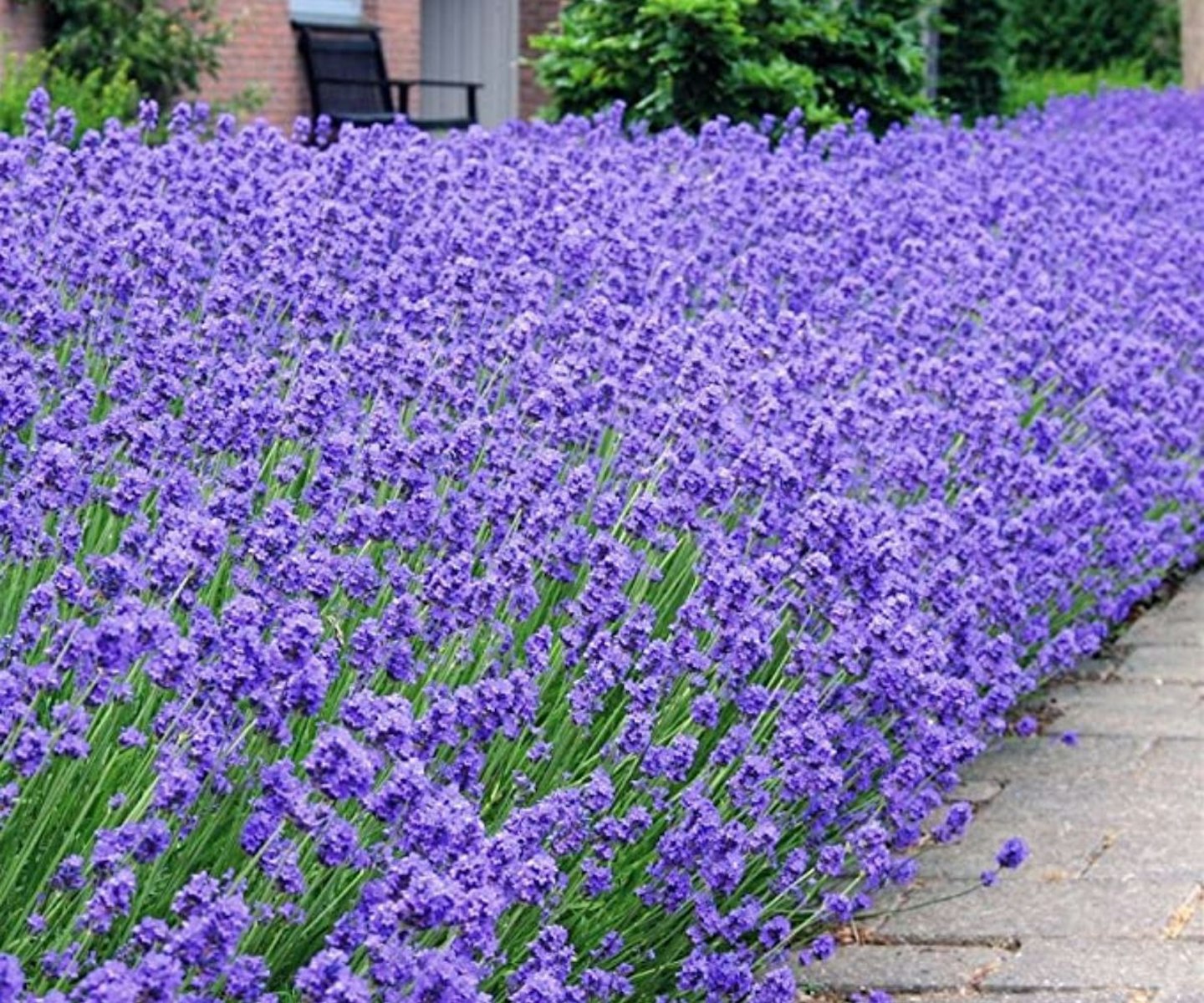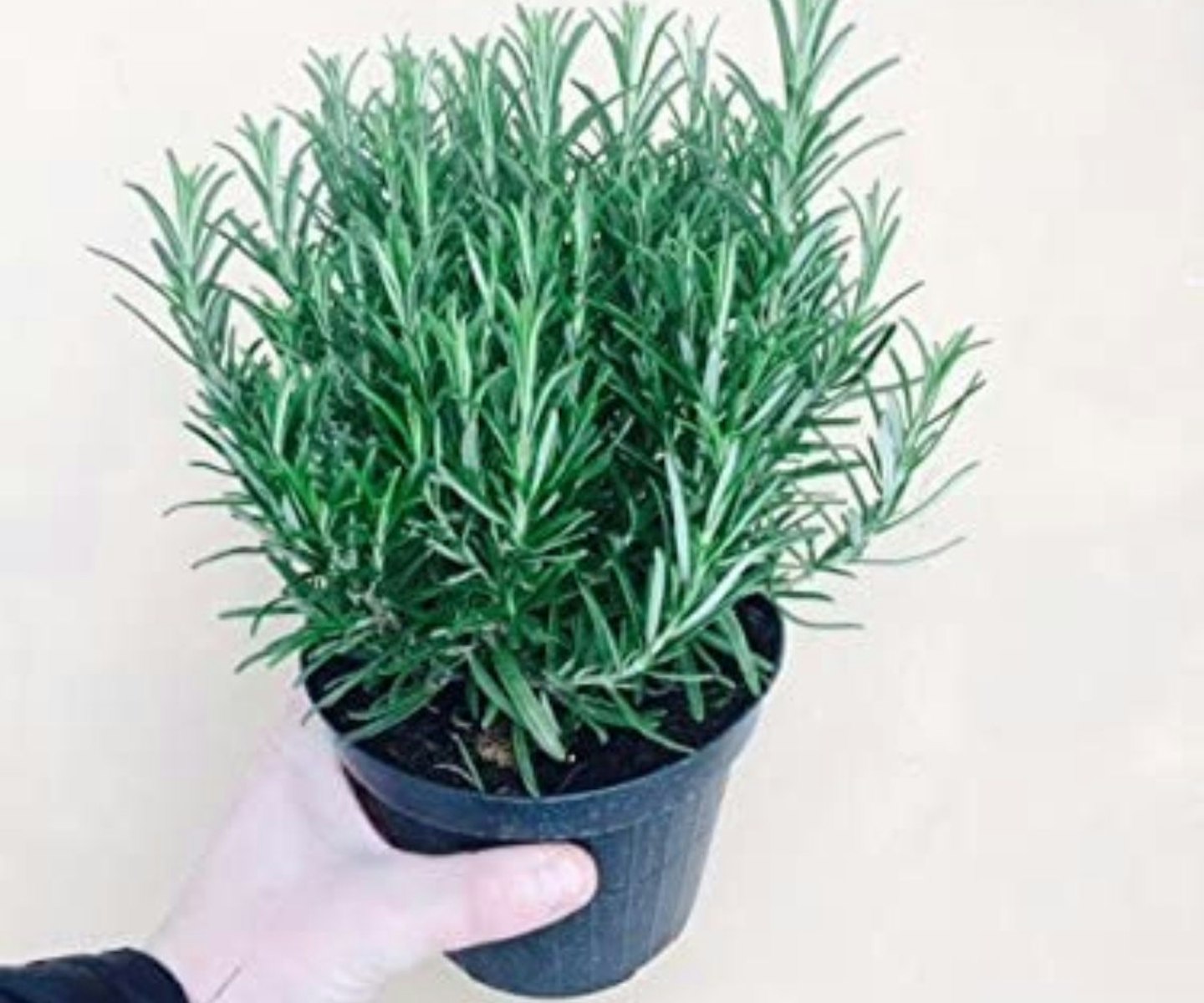If you have a bit of a green thumb, you might be curious about the best herbs to grow from home. Although, you may have been wondering whether keeping herbs would pose a challenge, especially if you're short for space.
However, growing herbs is surprisingly easy, and here at Spirit & Destiny we've put together a guide to prove it. We've chosen a selection of the best herbs to grow, including how to grow them, so that you can start your very own herb garden.
What is the best way to grow herbs?
If you thought you didn't have the space to grow herbs from home - think again. As well as being able to grow them from a patch or planter in your garden, you can grow them in plant pots around the house too.
So if you're short on space, you can even grow herbs on your windowsill or from hanging baskets on your balcony! Here are some of our top tips on choosing the best herbs to grow, depending on your environment.
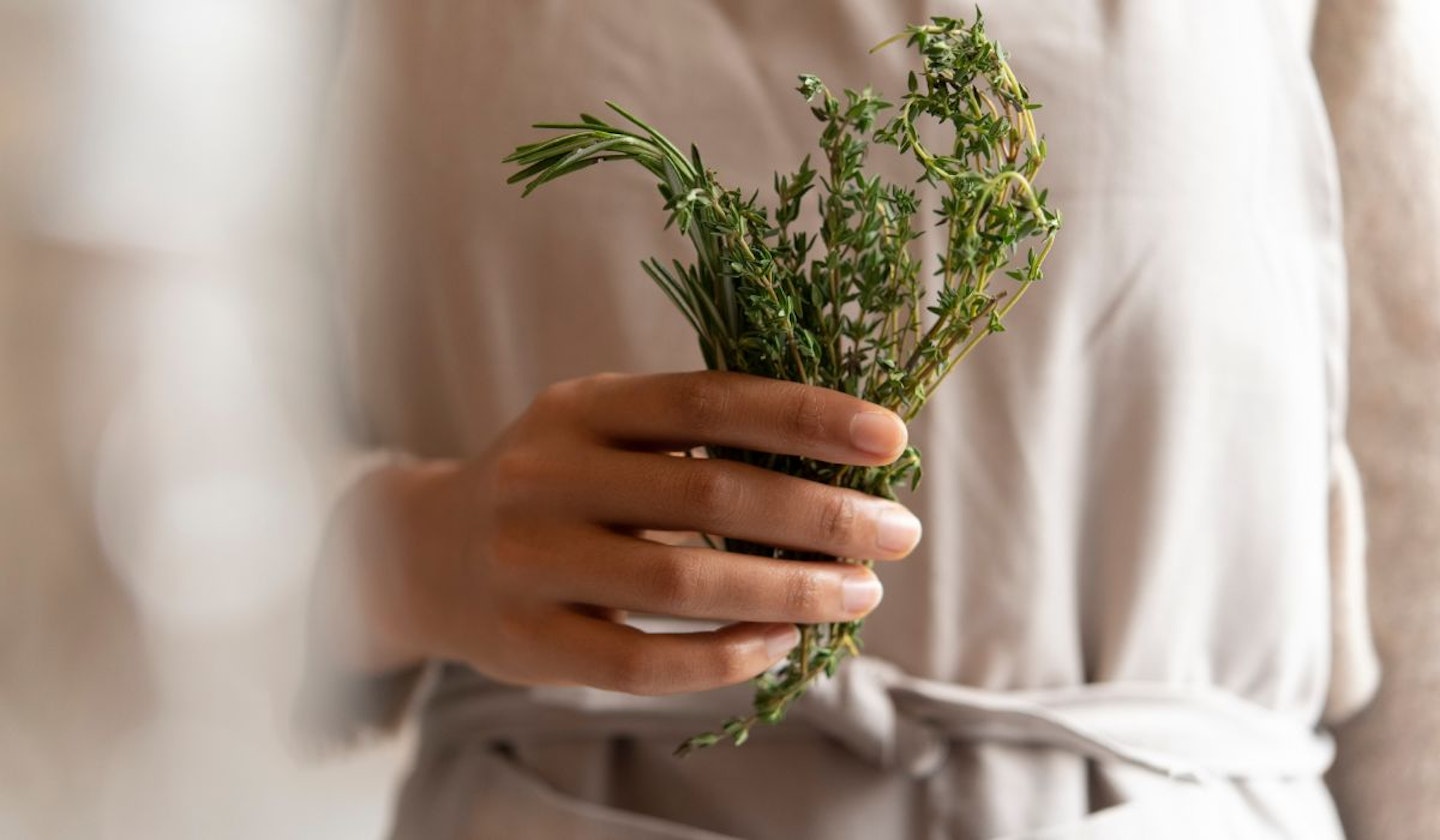
Indoor or outdoor?
As you can imagine, most plants thrive better outdoors but can also be grown indoors.
Annual herbs are generally best for growing indoors. On the other hand, perennial herbs are best grown outside.
Your seeds will need plenty of space to grow, so keep in mind that you'll need to accommodate your plant as it grows. Additionally, some will need to be at a certain temperature in order to germinate, so this is something that you'll need to consider.
In the shade or in the sunlight?
Another factor is the amount of light your plant needs. On average, most herbs need around six hours of sunlight to grow. If you're growing your herbs indoors, you'll need to account for this by placing your plants on a warm, sunny windowsill.
Some herbs don't require as much sunlight to grow and can still thrive in the shade. These include chives, coriander, dill, lemon balm and parsley, which may be a good option for beginners.
All year round or seasonal?
Are you looking for a plant that will grow all year round? Evergreen perennial herbs, such as lavender, rosemary, bay and thyme are great options that will stay green, even throughout the winter.
Perennial herbs like chives, oregano and thyme live for two or more years. Whereas, annual herbs like basil, coriander and dill only live for one year.
There are also cold season and warm season herbs, which you'll want to read up on before planting any herbs in question.
Best herb starter kits to grow
Best herbs to grow for herbal tea

www.naturalcollection.com
Camomile, Peppermint, Fennel.
From Growbar, this selection of starter herbs is perfect for sourcing your very own herbal tea. Including calming camomile to promote sleep with peppermint and fennel to promote digestion.
Start by unwrapping your Growbar and placing it with the brown protective paper facing upwards, into a container with plenty of space. Gently pour half a litre of water into the tray and position indoors on a warm, bright sunny windowsill. Water regularly and ensure that it is moist.
When seedlings appear, they'll be happy growing together in the bar for another month but should then be placed in individual pots in a sunny spot in the garden. Plants grown in the ground with plenty of space and sunlight will produce more abundant foliage. Plus, it is possible to plant the seedlings in large containers on the balcony or patio.
Indoor or outdoor? Either, although outdoors is bestAll year round or seasonal? Perennial, warm season (February to June)
In the shade or in the sunlight? Sunlight
Best starter kit for growing herbs
Basil, Coriander, Oregano, Marjoram, Dill, Parsley, Camomile, Garden Cress, Lemon Balm, Creeping Thyme, Chives and Sage.
With a selection of twelve herbs, this beginners kit contains gardening gloves, degradable plant pots and bamboo plant markers to get you started. Along with instructions, learn all about the different herbs included, and of course, give growing them a go.
Indoor or outdoor? Either, although outdoors is bestAll year round or seasonal? Depends on the herbIn the shade or in the sunlight? Depends on the herb
Best herbs to grow
Best evergreen herb to grow
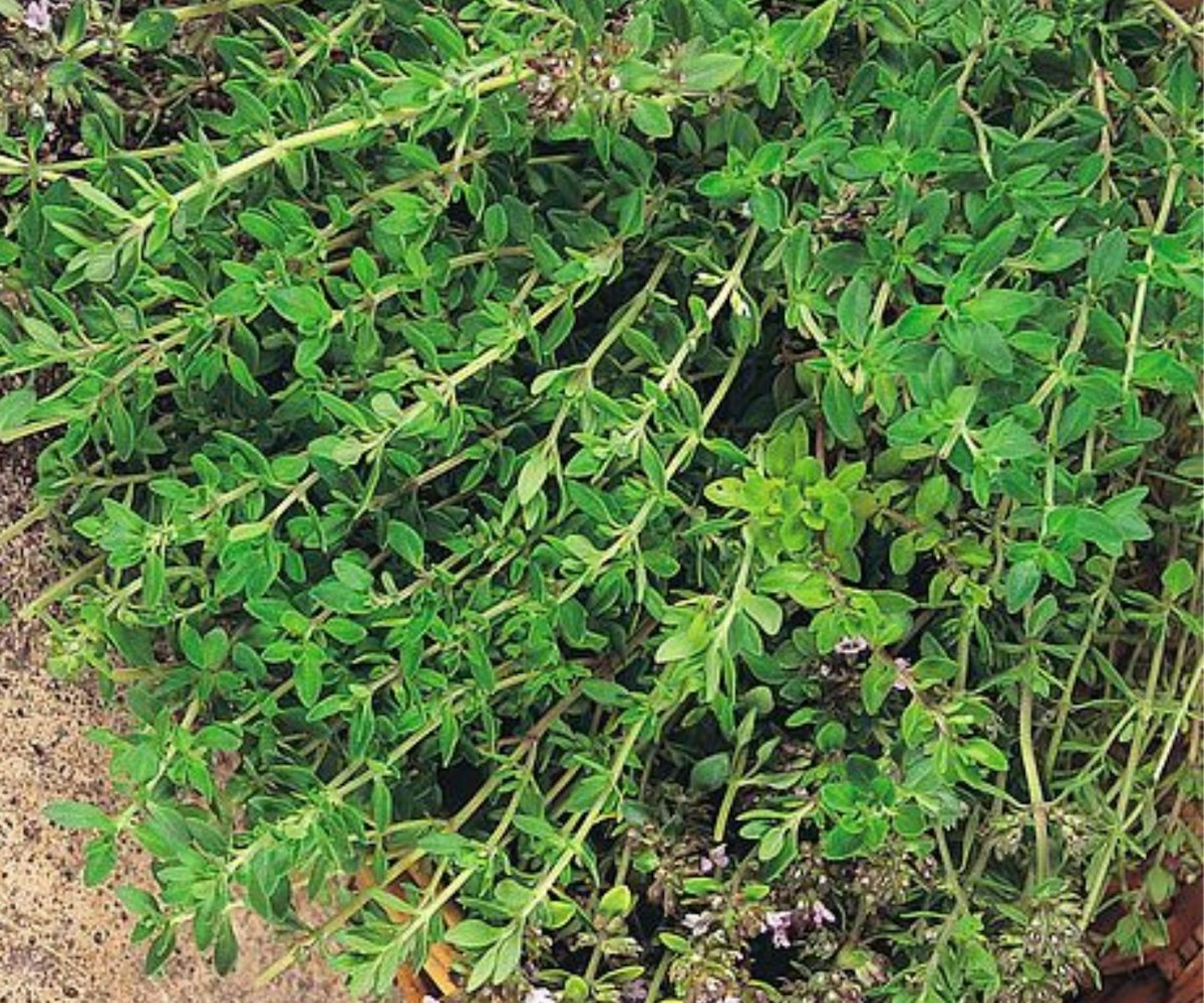
www.thompson-morgan.com
As well as an essential oil and a natural cough remedy, Thyme is a popular and aromatic herb that's used in many cooking recipes across the world. Derived from the mint family, it has so many health benefits - so it's not just for adding flavour to your food. From helping to fight respiratory problems to inflammation, its's medicinal properties are endless.
Indoor or outdoor? Either, although outdoors is best
All year round or seasonal? Evergreen perennial, warm season (February to September)
In the shade or in the sunlight? Full sunlight
Best herb to grow for beginners
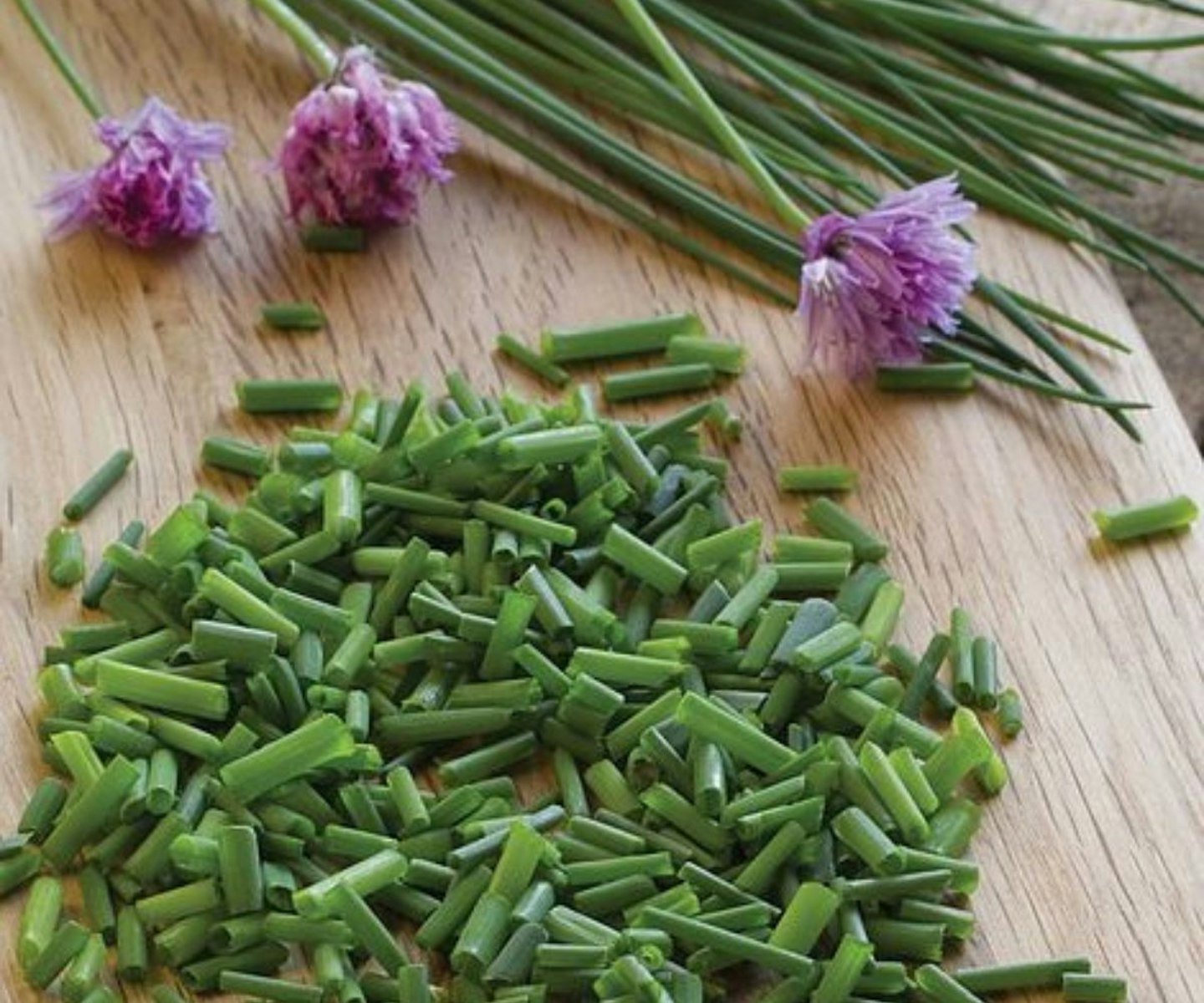
www.thompson-morgan.com
Part of the onion family, chives are a great low-maintenance herb for beginners to grow. Chives are generally used to add flavour to various foods, but they're also high in antioxidants and can help promote healthy cognitive function, to name a few.
Indoor or outdoor? Either, although outdoors is best
All year round or seasonal? Perennial, cold season (October to February)
In the shade or in the sunlight? Sunlight or semi-shaded
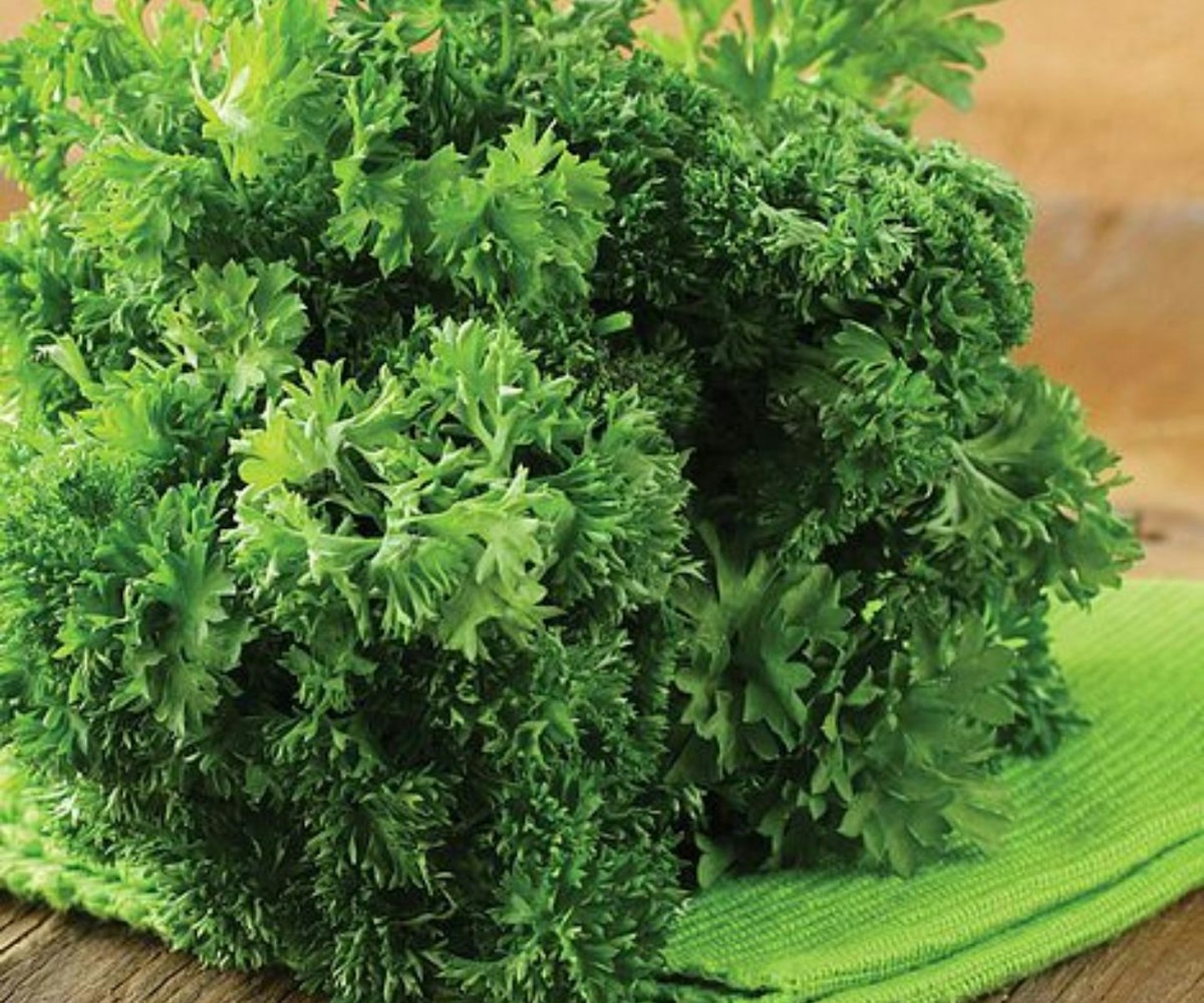
www.thompson-morgan.com
This herb certainly has its uses. From cooking to cosmetics and medicine, it's a fairly common and versatile herb that's easy to grow. There are different types of parsley, each differentiating in flavour. However, parsley often holds quite a bitter taste that complements other ingredients well. Due to it being rich in Vitamin C, it's also a very popular choice for cosmetic products.
Indoor or outdoor? Either, although outdoors is bestAll year round or seasonal? Perennial, cold season (October to February)
In the shade or in the sunlight? Sunlight or semi-shaded
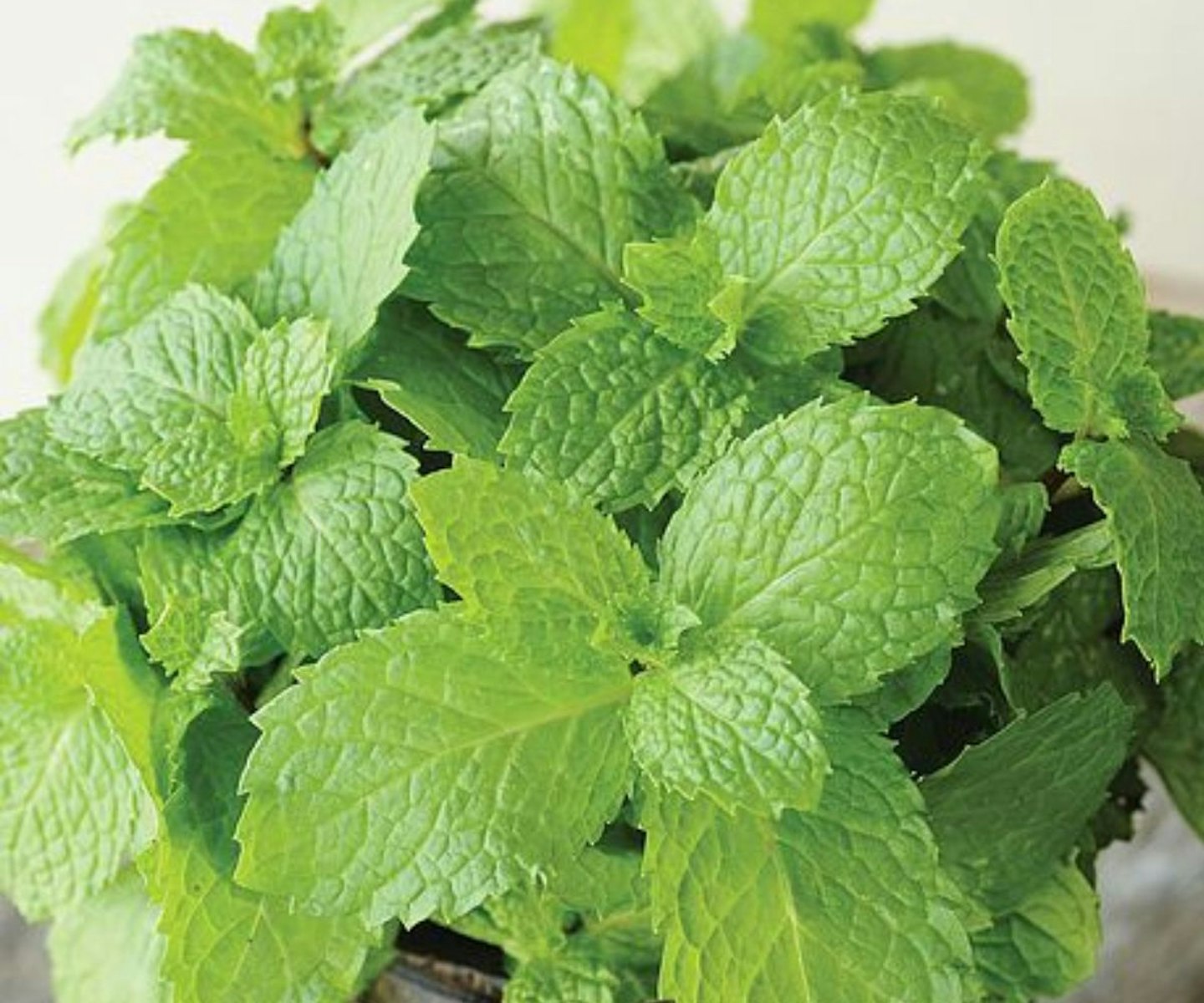
www.thompson-morgan.com
Another fantastic versatile herb is mint. Particularly known for helping with digestion issues, oral health and the immune system. In culinary practices, mint is used to season food and drink. It's also used in cosmetic products like lip balms and toothpaste for its aroma.
Indoor or outdoor? EitherAll year round or seasonal? Perennial, cold season (October to February)
In the shade or in the sunlight? Sunlight or semi-shaded
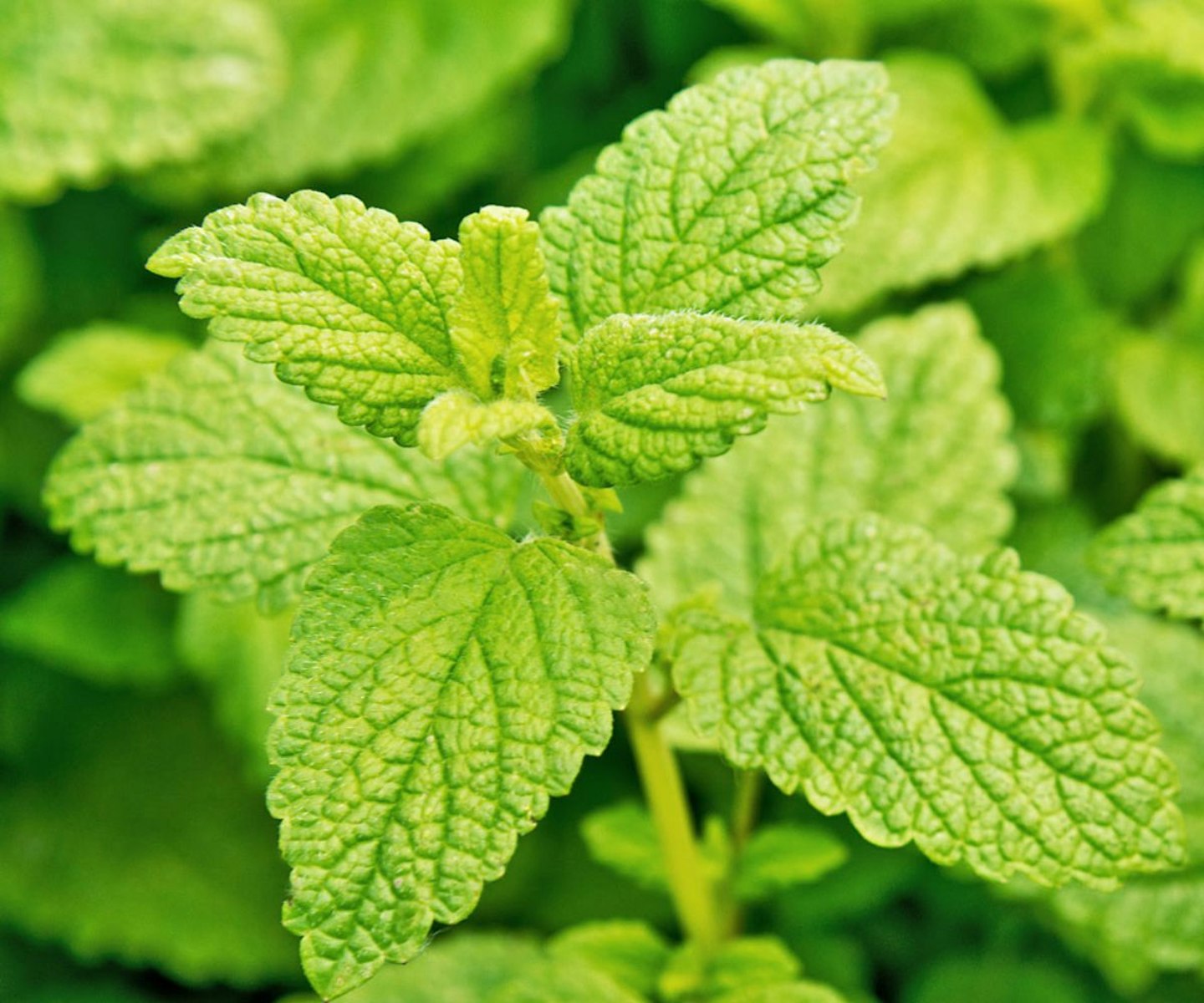
www.thompson-morgan.com
Known for helping with sleep and anxiety, this member of the leaf family has been used as far back as the Middle Ages. It can be used to make tea, as an essential oil or taken as a supplement. In cooking, it can aid digestion issues. It has the refreshing taste of mint with a citrus element and smells somewhat like lemon, which is where the name is derived from.
Indoor or outdoor? Either
All year round or seasonal? Perennial, warm season (February to September)
In the shade or in the sunlight? Sunlight or semi-shaded
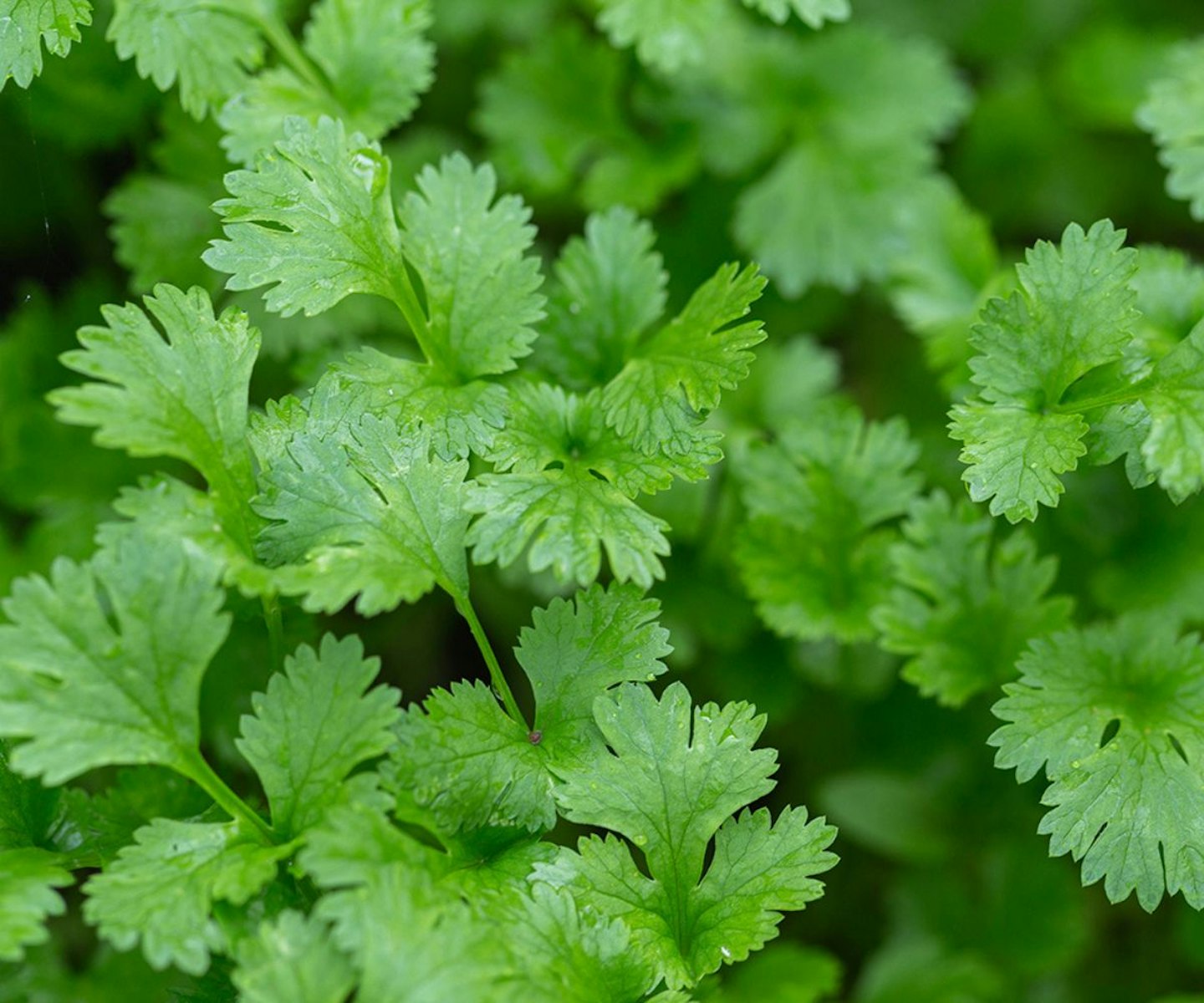
www.thompson-morgan.com
A popular herb in cooking: coriander adds a fresh flavour to a dish. It's a fantastic source of vitamins, nutrients and antioxidants. Closely related to parsley, it is also known as cilantro. It can help with digestive or inflammatory issues, as well as a flavouring agent.
Indoor or outdoor? Either
All year round or seasonal? Annual, warm season (February to September)
In the shade or in the sunlight? Sunlight or semi-shaded
With so many benefits to this aromatic herb, lavender just had to make the list. As well as having beautiful purple blooms, the smell of lavender is so calming and has been used as a sleeping aid for centuries. Popular in sleep spray mists, essential oils and other cosmetics, the relaxing effect of this herb definitely does not go unnoticed.
Indoor or outdoor? Either, although outdoors is best
All year round or seasonal? Perennial, warm season (February to September)In the shade or in the sunlight? Full sunlight
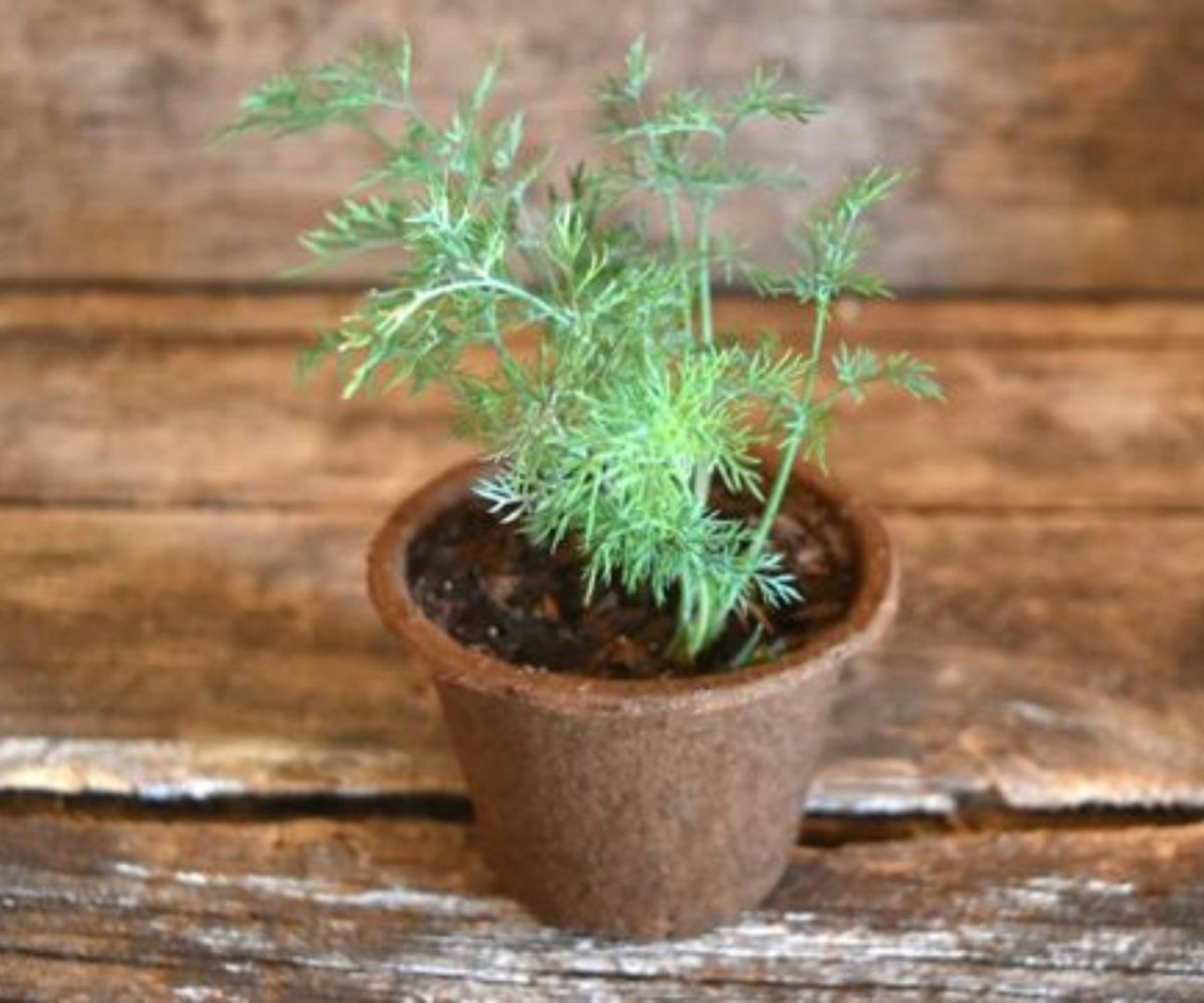
www.abelandcole.co.uk
Generally used as a garnish, dill has a sharp and somewhat grassy flavour that adds dimension to a meal. Dill is full of vitamins, nutrients and antioxidants. In fact, it's known for reducing the risk of cardiovascular issues or problems with cholesterol.
Indoor or outdoor? Either, although outdoors is best
All year round or seasonal? Annual or perennial, warm season (February to September)**
In the shade or in the sunlight?** Full sunlight or semi-shaded
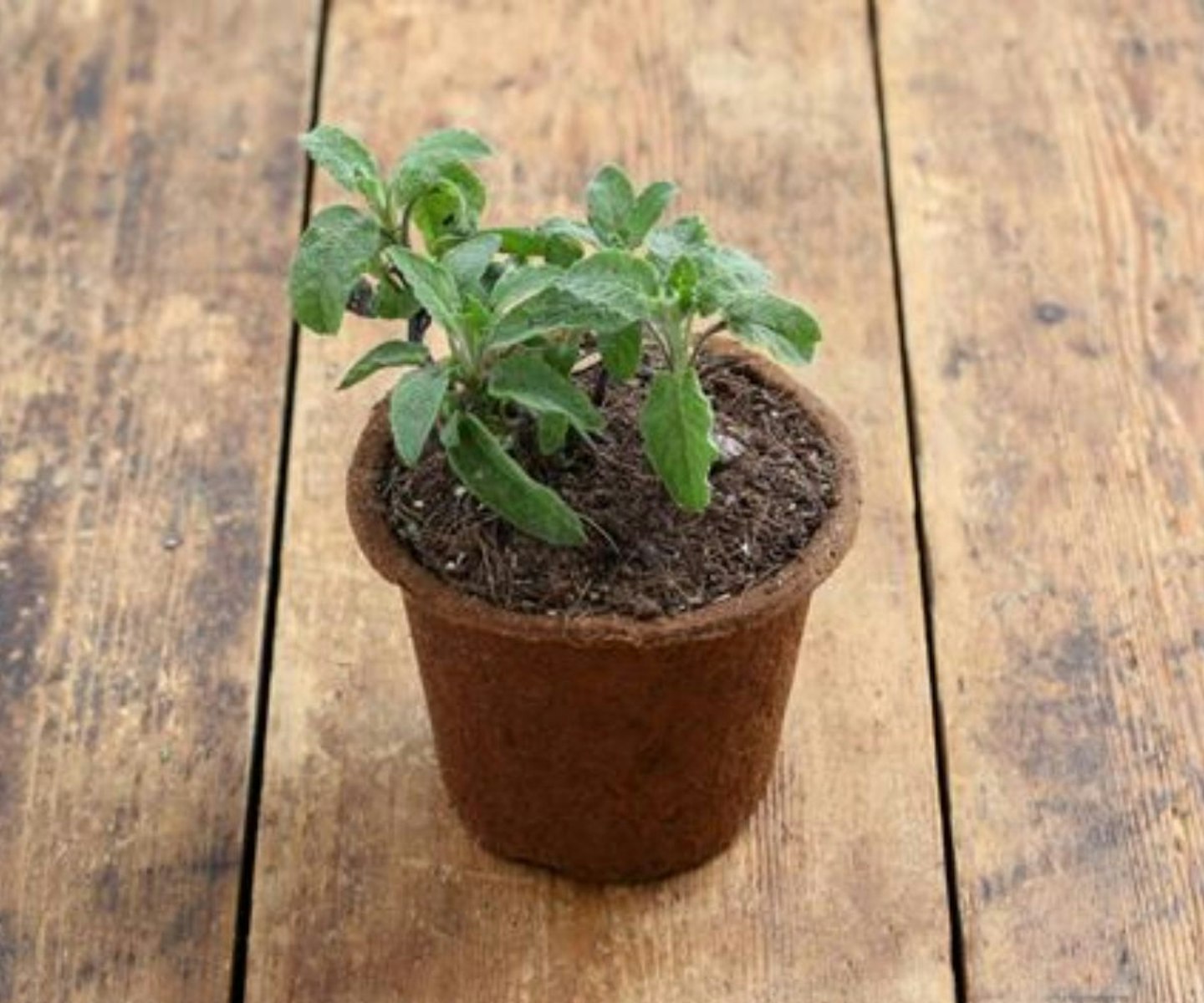
www.abelandcole.co.uk
Improving cognitive function, helping digestive issues and holding antibacterial properties are just some of the amazing benefits of this herb. Not only can it be brewed in tea and used for flavour in cooking, but in certain Indigenous cultures, sage is commonly used in spiritual rituals for cleansing.
Indoor or outdoor? Either, although outdoors is bestAll year round or seasonal? Perennial, warm season (February to September)In the shade or in the sunlight? Full sunlight
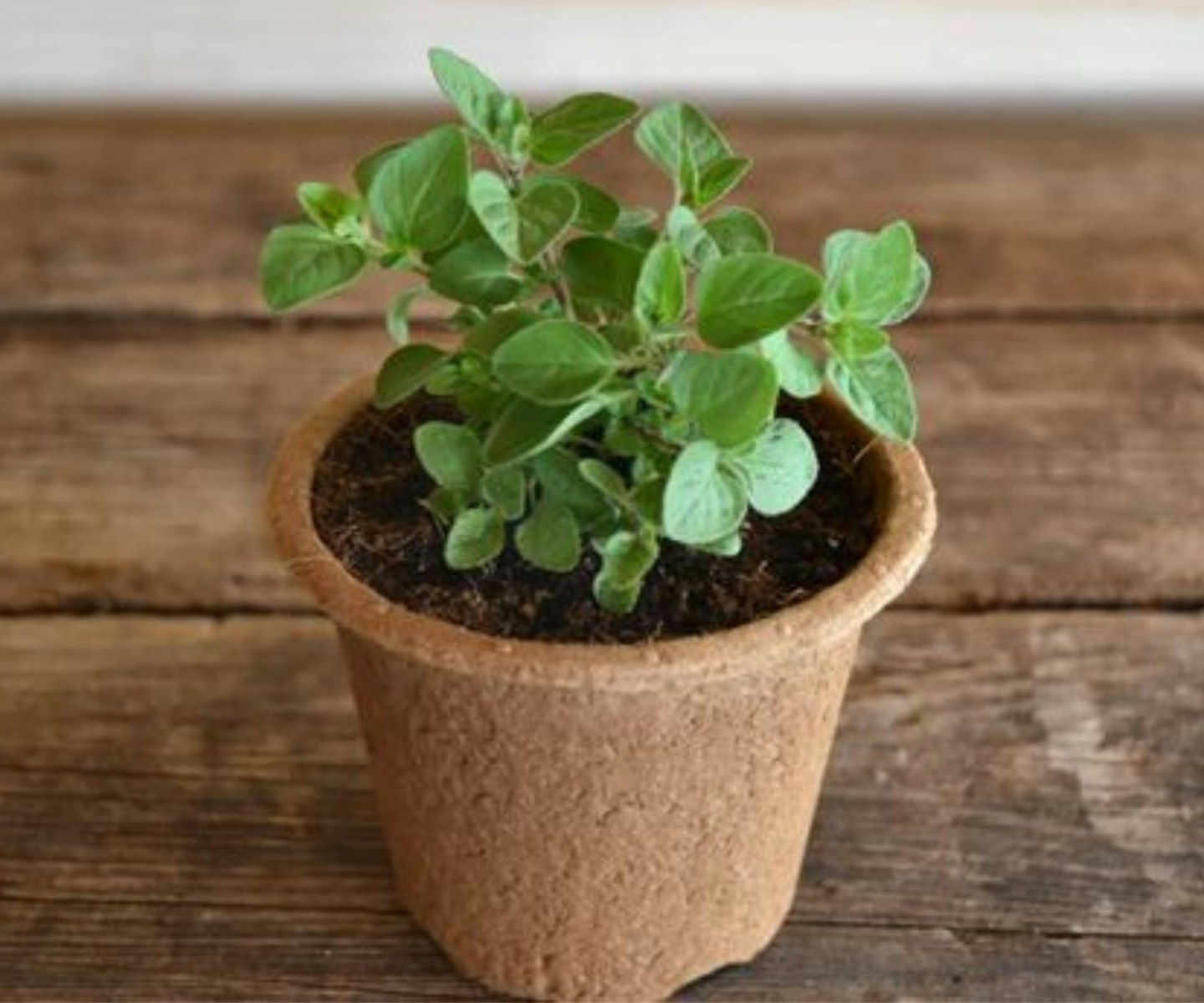
www.abelandcole.co.uk
This Mediterranean herb is featured in plenty of cooking recipes due to its unique flavour. It's got plenty of health benefits and has been used as a medicinal herb for centuries. Not only is it a natural antibiotic, but it's also antiseptic and has antifungal agents.
Indoor or outdoor? Either, although outdoors is best
All year round or seasonal? Perennial, warm season (February to September)In the shade or in the sunlight? Full sunlight
With a powerful aroma, rosemary has a unique pine taste that adds flavour and scent to a dish. It's so rich in antioxidants and anti-inflammatory properties, making it useful to grow in your garden. Not to mention, it's been linked to stimulating hair growth, which is why it's in so many hair products.
Indoor or outdoor? Either, although outdoors is bestAll year round or seasonal? Evergreen perennial, cold season (October to February)
In the shade or in the sunlight? Full sunlight
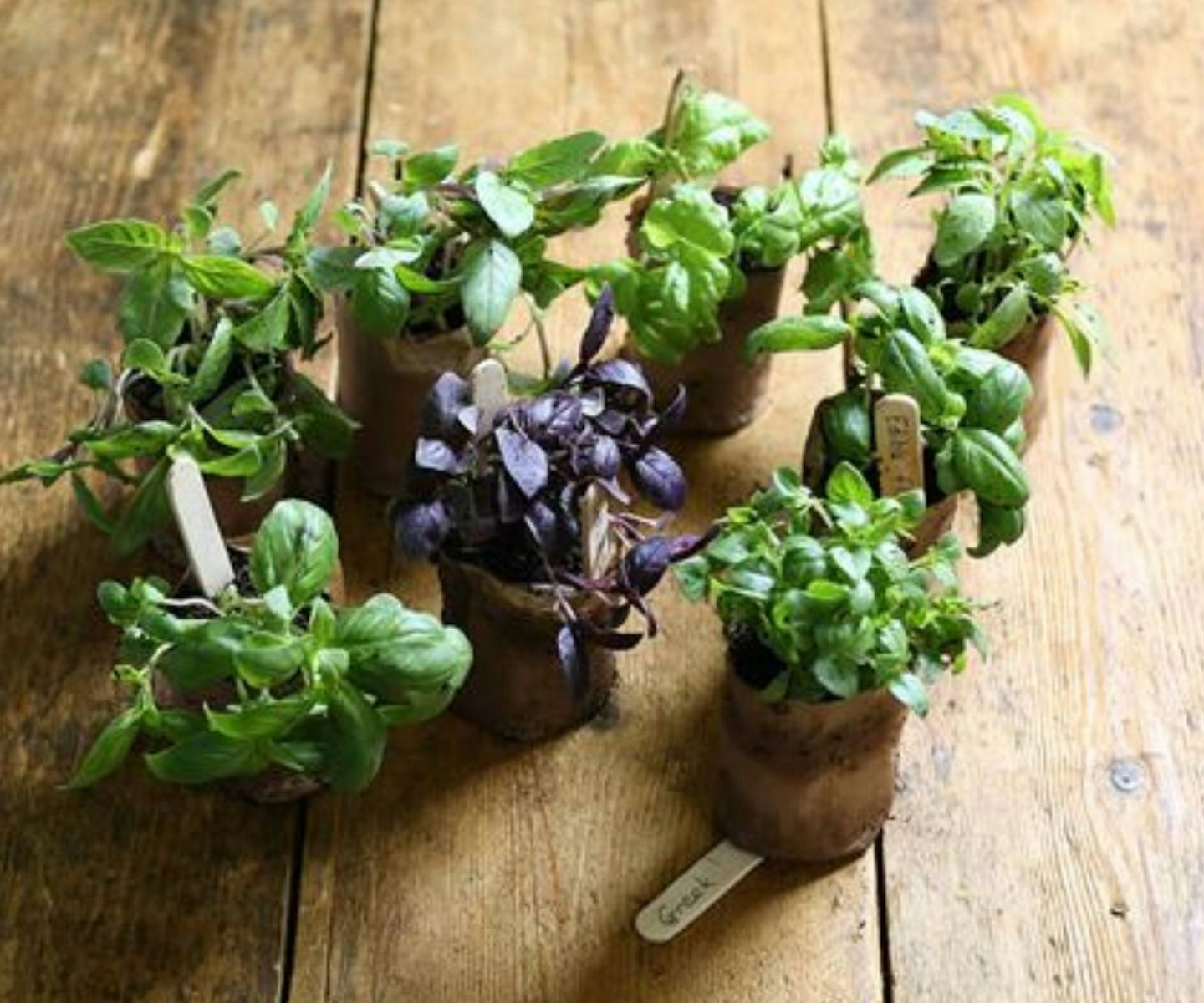
www.abelandcole.co.uk
As well as medicinal uses for digestion issues, basil is a flavourful herb that tastes faintly of anise and adds a peppery taste to any meal. It is also used in cosmetics due to its anti-ageing, anti-inflammatory and anti-bacterial properties.
Indoor or outdoor? EitherAll year round or seasonal? Annual, warm season (February to September)In the shade or in the sunlight? Sunlight
What's the best herb to grow for beginners?
Our verdict concludes that the best herb to grow for beginners would be thyme, chives, coriander or dill, due to the fact they require little maintenance. Chives, coriander and dill can still grow in the shade, and thyme is evergreen, meaning it'll thrive all year round.
What else can herbs be used for?
Not only do herbs hold various medicinal properties like helping to promote sleep, but these aromatic plants are also commonly used to season food, brew tea and in the creation of certain cosmetic products.

